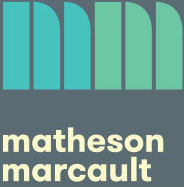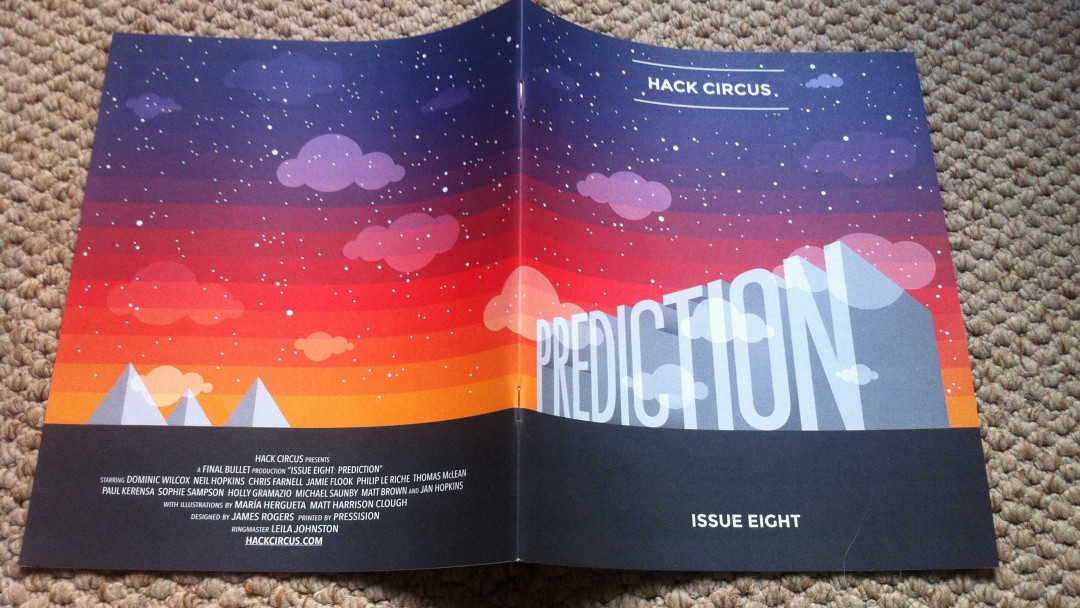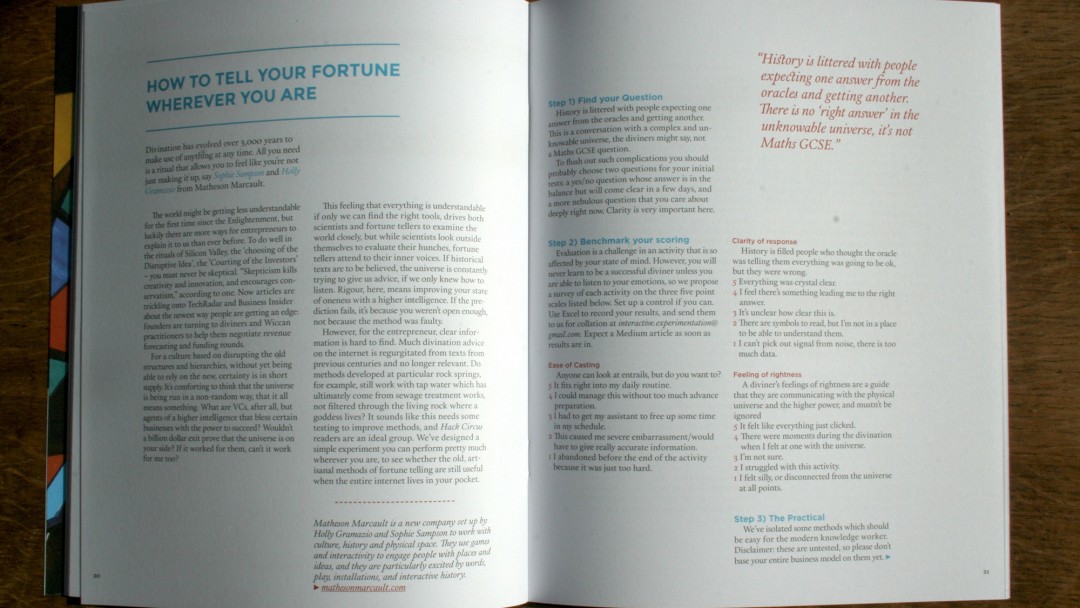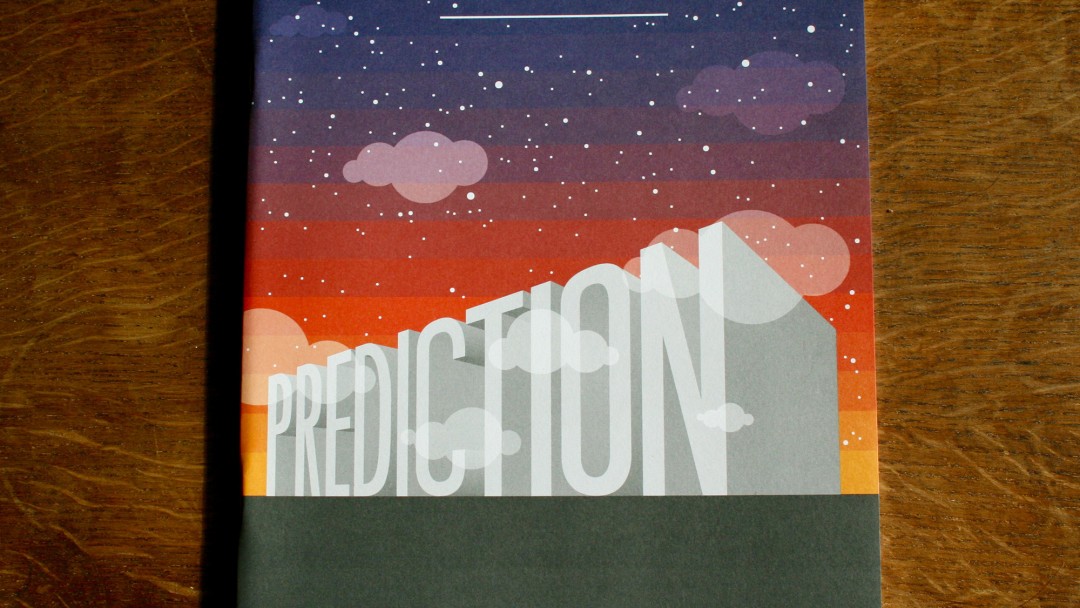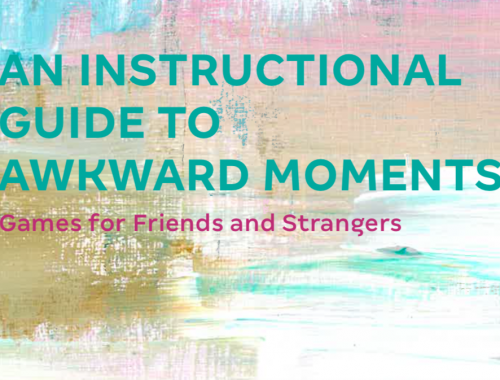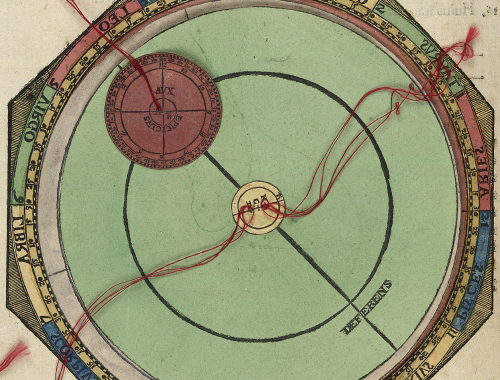The latest issue of Hack Circus is out – it’s a beautifully produced, tactile print magazine, and we’re really pleased to have designed an interactive experiment for this issue on the history of divination. Get your copy here.
How to tell your fortune wherever you are
The world might be getting less understandable for the first time since the Enlightenment, but luckily there are more ways for entrepreneurs to explain it to us than ever before. To do well in the rituals of Silicon Valley – the Choosing of the Disruptive Idea, the Courting of the Investors – you must never be skeptical. “Skepticism kills creativity and innovation, and encourages conservatism” said one. Now articles are trickling onto TechRadar and Business Insider about the newest way people are getting an edge: Founders turning to diviners and Wiccan practitioners to help them negotiate revenue forecasting and funding rounds.
For a culture based on disrupting the old structures and hierarchies without yet being able to rely on the new, certainty is in short supply. It’s comforting to think that the universe is being run in a non-random way, that it all means something. What are VCs, after all, but agents of a higher intelligence that bless certain businesses with the power to succeed? Wouldn’t a billion dollar exit prove that the universe is on your side? If it worked for them, can’t it work for me too?
This feeling that everything is understandable, if only we can find the right tools, drives both scientists and fortune tellers to look closely at the world. However, where scientists look outside themselves to evaluate their hunches, fortune tellers are advised to listen to their inner voices. They succeed when they find the method of conversing with the universe that makes them feel connected to the essence of things. If historical texts are to be believed the universe is constantly trying to give us advice, if we only know how to listen. Rigour, in this context, is framed as improving your state of oneness with the higher intelligence. If the prediction fails, it’s because you weren’t open enough, not because the method was faulty.
However, for the new entrepreneur, clear information is hard to find. Much of the divination advice on the internet is regurgitated from texts from previous centuries without thought for how the world is different now. Do methods developed at particular rock springs, for example, still work with tap water which has ultimately come from sewage treatment works, not filtered through the living rock where a goddess lives? It sounds like this needs some testing to improve methods, and Hack Circus readers are an ideal group to put this to the test. We’ve designed a simple experiment you can perform wherever you are, to see whether the old, artisanal methods of fortune telling are still useful when the entire internet lives in your pocket.
Step 1) Find your Question
A great deal of the literature of divination is devoted to choosing the right question, and history is full of stories of people who thought they were getting one answer from the oracles ended up getting another. This is a conversation with a complex and unknowable universe, the diviners might say, not Maths GCSE. Why should a simple question get a simple answer? Nothing to do with the mechanics of cold reading.
To flush out such complications you should probably choose two questions for your initial tests, a yes/no question whose answer is in the balance but will come clear in a few days, and a more nebulous question that you care about deeply right now. Clarity is very important here. Divination is about the universe is trying to show you an answer by manipulating its very fabric, so if you’re not asking the same question it is answering, confusion is inevitable.
Step 2) Benchmark your scoring
Evaluation is a challenge in an activity that is affected by your state of mind. However, you will never learn to be a successful diviner unless you can listen to your emotions. We propose a survey of each activity on three five point scales. Set up a control if you can. Use Excel to record your results, and send them to us for collation at interactive.experimentation@gmail.com. Expect a Medium article as soon as results are in.
Ease of Casting
Anyone can look at entrails, but do you want to?
5 It fit right into my daily routine
4 This didn’t need annoying advance preparation
3 I had to get my assistant to free up some time in my schedule
2 This caused me severe embarrassment/ would have to give really accurate information
1 I abandoned before the end of the activity because it was just too hard
Clarity of response
History is filled people who thought the oracle was telling them everything was going to be ok, but they were wrong
5 Everything was crystal clear.
4 I feel there’s something leading me to the right answer
3 It’s unclear how clear this is
2 There are symbols to read, but I’m not in a place to be able to understand them
1 I can’t pick out signal from noise, there is too much data.
Feeling of rightness
A diviner’s feelings of rightness are a guide that they are communicating with the physical universe and the higher power, and mustn’t be ignored
5 It felt like everything just clicked
4 There were moments during the divination when I felt at one with the universe
3 I’m not sure
2 I struggled with this activity
1 I felt silly, or disconnected from the universe at all points
Step 3) The Practical
We’ve isolated some methods which should work for the modern knowledge worker, although these are untested, so please don’t base your entire business model on them, at least until we have some results.
In the Office
You probably spend most of your time in your office if you’re trying to disrupt the global marketplace. Don’t worry, there’s plenty there to work with. Think of this as a productivity hack – it is way easier to set strategy, for example, when you talk directly to the universe than having to look at reams of figures to try and figure out the underlying patterns. Wouldn’t you rather be certain?
Tasseomancy is divination by coffee grounds or tea leaves. This was traditionally done with hot coffee or tea, but also works with cold brew. Just skip the straining step and pour yourself a cup with the grounds left in. Cradle your cup and think hard about your question before drinking as much of the tea or coffee as you can without getting a mouthful of residue. Stare down into the bottom of the cup and swirl it around, perhaps turn it over onto a paper napkin until all the liquid has drained away.
Look for numbers, shapes you associate with your life, any glyphs [see sidebar]. Write them down. Perhaps invite a co-worker to come and tell you what they see in the cup independently. Choose your co-worker carefully though, you may find out more than you want to about how they feel about you.
Extra credit: set up a double-blind trial of co-workers to interpret what the tea and coffee is trying to tell you.
Hydromancy – divination by water
As mentioned, there is a question mark over whether tap water works for Hydromancy. The water from particular places in the earth was dedicated to different goddesses, and this is reflected in many of the traditional methods. For example, in 2AD Greek traveller Pausanias described a particular fountain dedicated to ‘Ino-Leocothea of the beautiful ankles’, which worshippers would throw in loaves of bread with a question. If they sank, that was good luck. If they were washed up, that was bad. It’s unclear at this point in history how the universe was producing this particular effect. Was it the goddess standing in the fountain dealing with loaves of bread as they came (what was believed then), or were there particular properties to the bread or the water? Perhaps this could be replicated by borrowing a cereal bowl from your most perfectly-ankled colleague, and throwing in small biscuits. Perhaps not. Science will tell us!
There are various divinations that seem more likely to work over a mug of tapwater:
Pegomancy is when you colour the water with ink to make a more reflecting surface to scry in. Use your favourite mug – divining texts tell us that ‘the more you like the vessel chosen, the more accurate is your prognostication’. However, please wash it out well afterwards if you don’t want an inky moustache.
Ermonaty is an ancient Persian method of divination. Diviners enveloped their head in a napkin and exposed a vase filled with water to the air while muttering the object of their desire over it in a low voice. If bubbles came to the surface, this was considered a good sign.
Scrounge around the kitchen. If someone has been to McDonalds recently you might find some packets of salt, and could perform Alomancy, interpreting the patterns of salt thrown into the air. Use the glyphs for this. If you plan to leave the office for a meeting, you can practice Stolismancy as you put your coat on – if you find you’ve actually put your arm in the wrong sleeve, or done up the fastening wrong, that is a bad omen, and you might consider rescheduling, or at least go in with a more defensive stance.
Out in the city
Outdoors you have the whole city at your disposal, in all its complexity. You want to minimise the fiddly organisation needed for the universe to get information across to you, so these are all best performed while walking at random. That way the higher intelligence can guide your steps to likely scenes unfolding rather than perform the work of actually moving stuff around for you.
Walk until the streets are starting to blur together, until the people are obstacles who have started to lose their individuality. Near a loud pub, listen to the drunken shouts. This is Clamancy – Fāl-gūsh in Persian texts is similar. It’s the act of listening to the snatches of conversations of the people passing by, trying to interpret them as an answer to your question. Either take the actual phrase you hear, or what you think is the subject of the conversation.
Retromancy is divination by suddenly looking over your own shoulder. You don’t want to see too much. Just enough to interpret what you do see as significant. Look for the shapes of glyphs, look for people and things you didn’t notice while walking forward. Whatever speaks to you, right? Just don’t try this in front of someone you want to impress.
If the person you see over your shoulder is covered in moles or has acne, you can get two for one by also practicing Maculomancy, the interpretation of randomly placed spots. Like Tasseography, you are looking for symbols, for glyphs, for anything which might mean something.
Keep your eye out for paper on the ground. Flyers, stickers, torn pieces of newspaper. Chartomancy is interpreting found text on paper. It’s harder to find love with Chartomancy now that sex workers no longer advertise in phone boxes, but in a British city the universe will bring you enough club flyers and torn pieces of newsprint that the message can still get through.
Stuck in a room with only this magazine
You might have assumed that you couldn’t do divination without tools, but you’d be so, so wrong. Fortune telling has evolved over three thousand years to be done with anything at any time. All you need is a ritual that allows you to feel like you’re not just making it up.
Firstly, if you can mark the floor, draw a circle with the letters A to Z around it. Gyromancy involves walking or running round the circle till you get so dizzy you fall to the ground. You’ll hopefully be touching one of the letters when the room stops spinning. Whole sentences might be beyond the reach of most, but fortune favours the brave, right? (There’s another form you can do by marking the edge of a coin and spinning it over a circle of letters, but where’s the commitment there?)
Geloscopy is within the reach of those locked in rooms with friends. Perhaps on an overly long conference call. One person takes the role of diviner, and puts themselves into a trance. They are aiming for a state of hysterical laughter which the other person, the soothsayer, can interpret the tone of. The particular secrets of what you should be looking for have not been passed down from the Greeks, so this one is all in the interpretation. Same with Ptarmascopy, divination by sneezes, but if you feel like there’s a question on the tip of your tongue and a tickle in your throat, go for it.
If that sounds too hard, settle down and go to sleep. Oneiromancy, dream interpretation, is one of the most written-about historical divination techniques. Almost every ancient society has texts on how to interpret the strange pictures in your head. The oldest surviving advice is Egyptian, from around 1275 BC, and concentrates on what to do if you see yourself in your dream. “If a man sees himself looking out of a window: good; it means the hearing of his cry. If a man sees himself in a dream with his bed catching fire: bad; it means driving away his wife.”
Unfortunately a comparative review of the literature shows no useful patterns – each culture seems to develop its own interpretation of symbols for Oneiromancy, so this might be something that you can only develop personally, over time.
Finally, if the question of why you are stuck in this room is uppermost in your mind investigate Armomancy, which is described as examining the shape of the shoulderblades to determine if someone is suitable for ritual sacrifice. Just a thought.
So, over to you. Take a step into a worldview where the very molecules in front of you can and should be rearranged to communicate with you, and you alone. Is it comforting or disquieting? Do you feel better? More sure of things? More important? Perhaps this works like a placebo, which is proven to have an effect even if you know it’s a placebo? Is it possible that the process of isolating the one question you need to ask the universe is useful in itself, whatever the answers say?
Divination is part of every society in every corner of history because it fulfils such a deep human need, for ritual, to know the unknowable and get one over on the competition. It’s understandable that pressured founders with everything at stake sometimes buy peace of mind from those who want to sell it to them. Just, if you’re going to look at entrails in the office, make sure you clear up properly. It’s an HR issue, and employees complaining about ritual sacrifice does nothing for your marketplace buzz.
